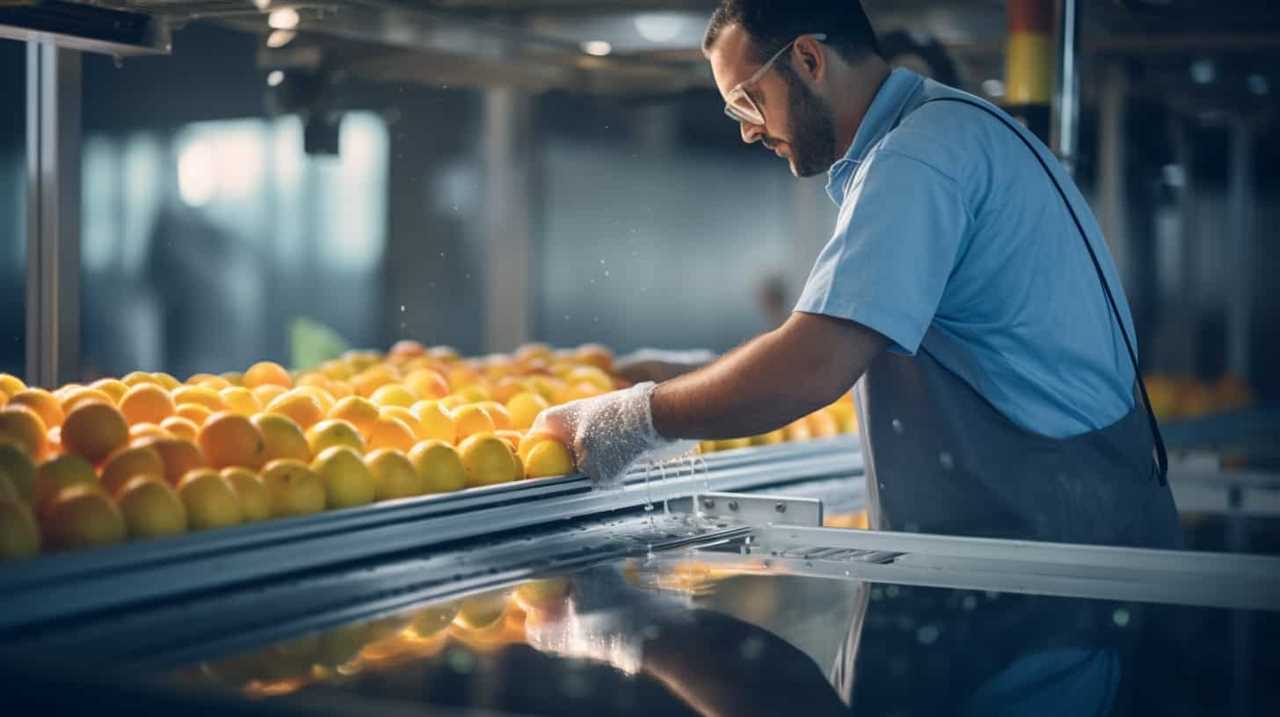As experts in beverage packaging, we understand the challenges that come with finding materials that provide top-notch performance.
You might be wondering, ‘Why should I care about the materials used in beverage packaging?’ Well, let us assure you, the right materials can make all the difference in preserving flavor, ensuring safety, and reducing environmental impact.
In this article, we will explore the top materials for beverage packaging, including glass, PET bottles, Tetra Pak cartons, aluminum cans, and biodegradable options.
Join us as we dive into the world of superior beverage packaging materials.
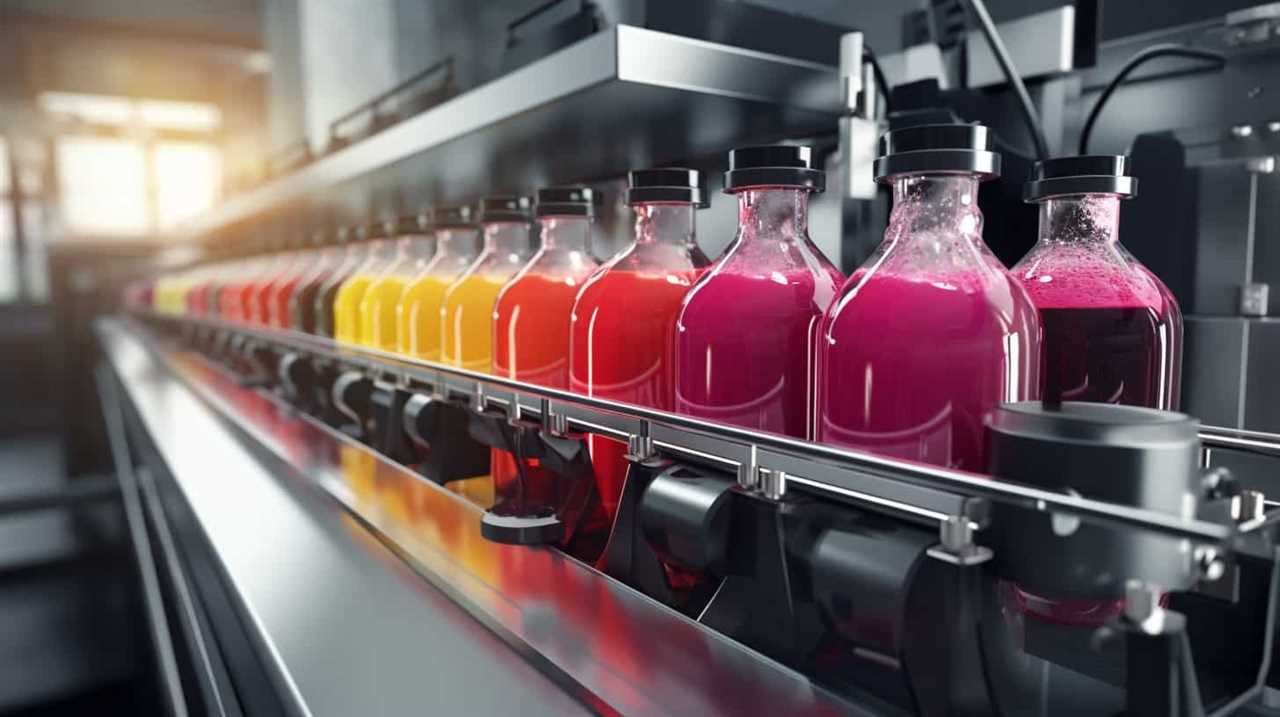
Key Takeaways
- Glass packaging offers durability and aesthetic appeal, but it is heavier and more fragile compared to other materials.
- PET bottles are versatile and convenient, lightweight, and highly recyclable.
- Tetra Pak cartons provide excellent protection and beverage preservation, are made from recyclable materials, and are lightweight and easy to handle.
- Aluminum cans are lightweight and portable, have an excellent barrier against light, oxygen, and moisture, and are highly recyclable.
Glass Packaging
When it comes to choosing the ideal material for beverage packaging, we prefer glass packaging for its durability and aesthetic appeal. Glass packaging offers numerous advantages in the beverage industry.
Firstly, glass is an inert material, meaning it doesn’t react with the contents of the beverage, ensuring the taste and quality remain unaffected.
Furthermore, glass packaging is fully recyclable and can be reused multiple times, making it a sustainable choice.
However, glass packaging does have its disadvantages. It’s heavier and more fragile compared to other materials, making it more expensive to transport and more prone to breakage. Additionally, the production of glass packaging requires a significant amount of energy and resources.
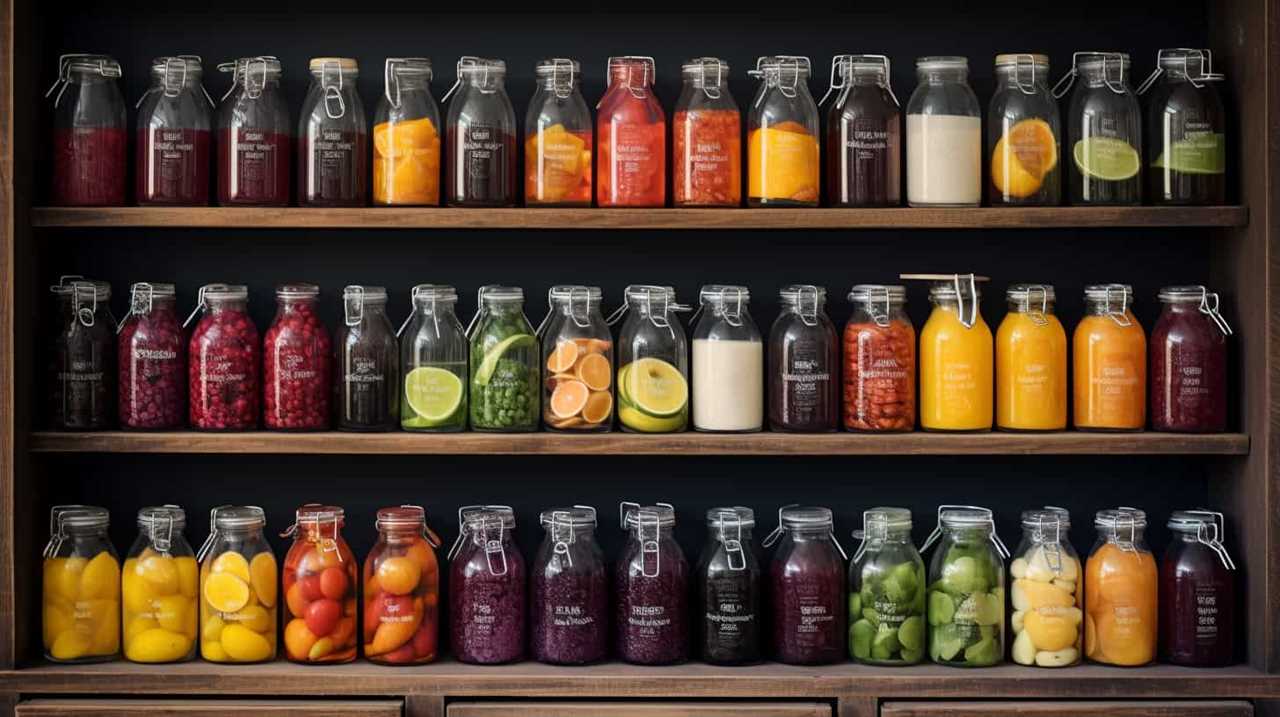
Despite these drawbacks, the durability and aesthetic appeal of glass packaging make it a popular choice in the beverage industry.
PET (Polyethylene Terephthalate) Bottles
We prefer PET bottles for superior beverage packaging due to their versatility and convenience. PET bottles offer numerous sustainability benefits, making them an excellent choice for environmentally-conscious consumers.
Here are four reasons why PET bottles are an ideal option for beverage packaging:
- Lightweight: PET bottles are lightweight, reducing transportation costs and energy consumption during distribution.
- Recyclability: PET is a highly recyclable material, enabling the creation of new bottles and reducing waste.
- Durability: PET bottles are durable, ensuring the safety and integrity of beverages throughout the manufacturing process and during transportation.
- Clarity: PET bottles have excellent clarity, allowing consumers to easily see the product inside, enhancing visibility and brand appeal.
The manufacturing process of PET bottles involves the use of polymerization, where ethylene glycol and terephthalic acid are combined to create PET resin. This resin is then molded into bottles using injection or blow molding techniques.
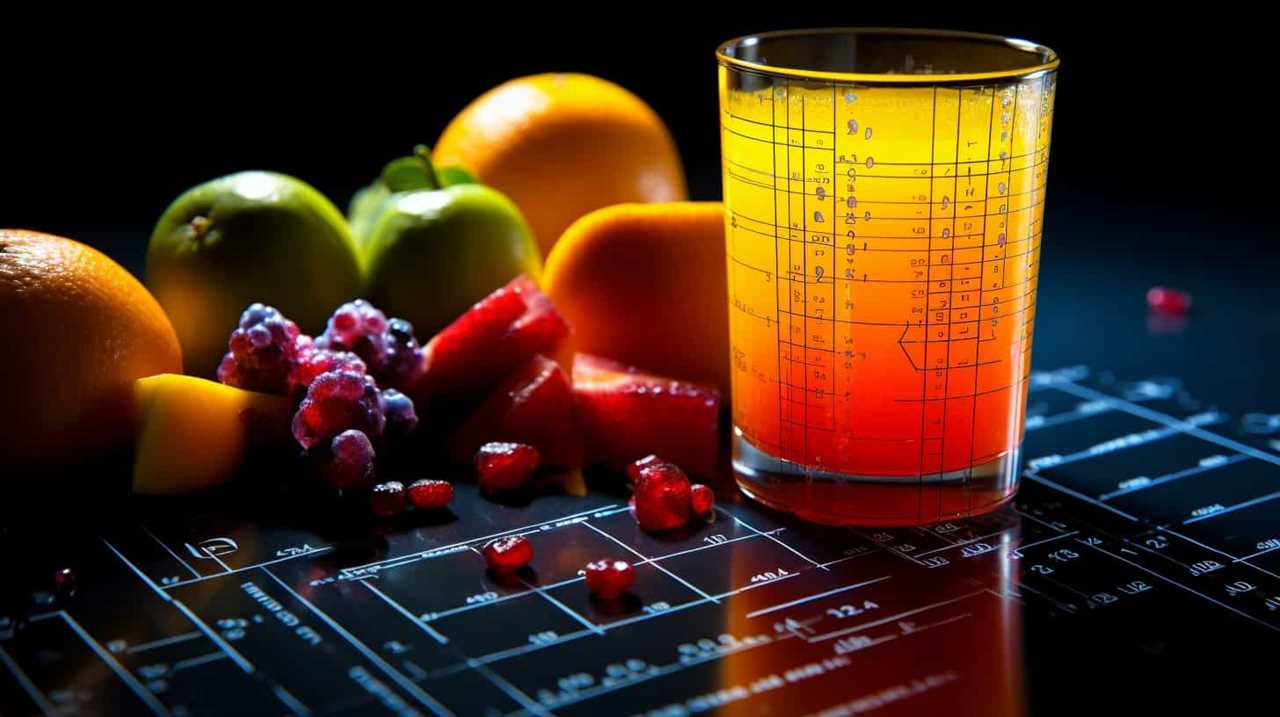
Tetra Pak Cartons
Moving on to Tetra Pak cartons, another excellent option for superior beverage packaging is available.
Tetra Pak cartons are made from multiple layers of paperboard, aluminum, and plastic, providing excellent protection and preserving the quality of beverages.
These cartons have gained significant market demand due to their sustainability benefits. The materials used in Tetra Pak cartons are recyclable, reducing the environmental impact compared to other packaging options.
Additionally, the lightweight nature of these cartons reduces transportation costs and energy consumption. Consumers appreciate the convenience of Tetra Pak cartons, as they’re easy to handle and store.
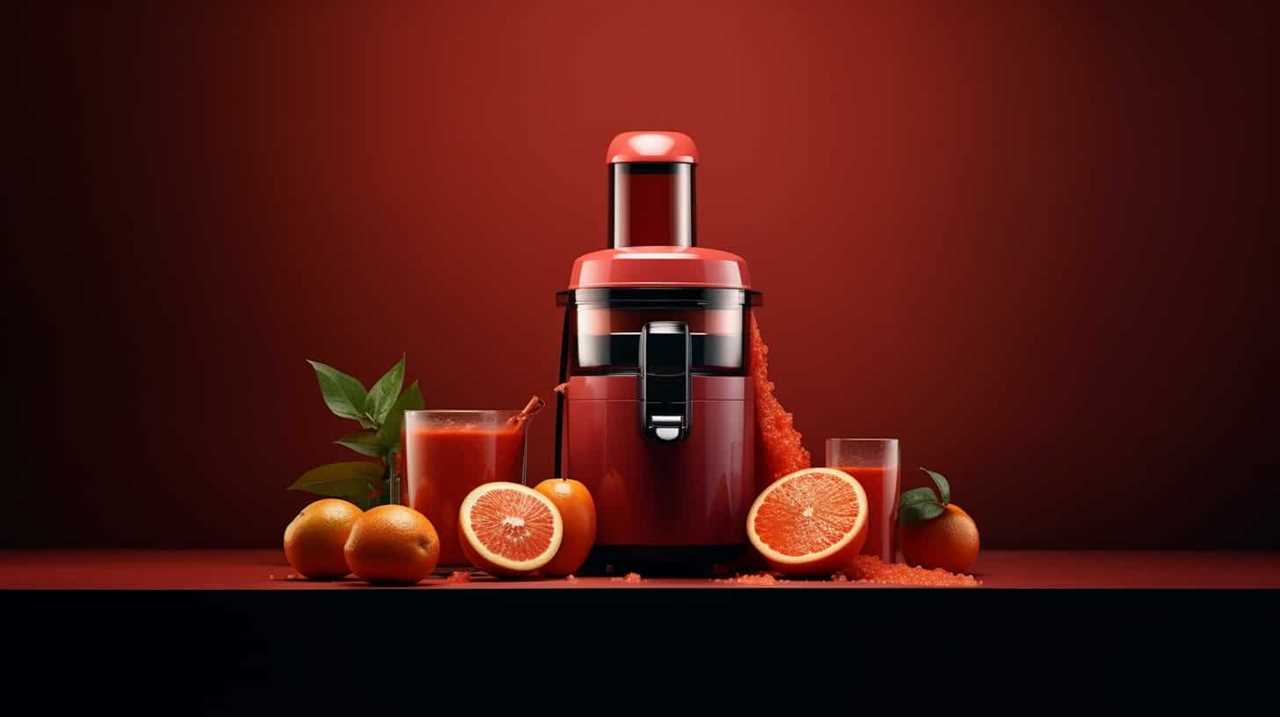
With the increasing focus on sustainable packaging solutions, the demand for Tetra Pak cartons is expected to grow.
Now, let’s move on to the next section, where we’ll explore the benefits of aluminum cans.
Aluminum Cans
Continuing our exploration of superior beverage packaging materials, let’s now delve into the advantages of aluminum cans. Aluminum cans offer several benefits over other packaging options, making them a popular choice in the industry.
Here are four reasons why aluminum cans are preferred:
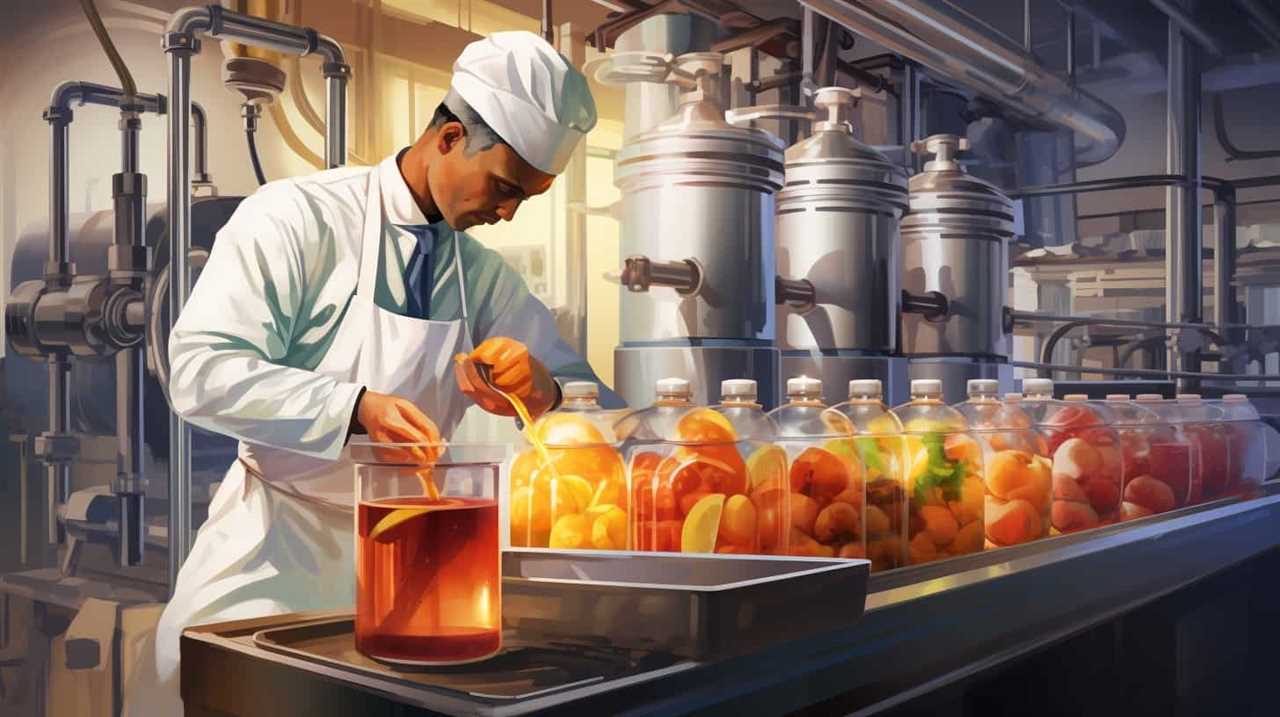
- Lightweight and portable: Aluminum cans are lightweight, making them easy to carry and transport. This feature is especially beneficial for consumers on the go.
- Excellent barrier properties: Aluminum cans provide an excellent barrier against light, oxygen, and moisture, preserving the quality and taste of the beverage inside.
- Recyclable: Aluminum cans are highly recyclable, with a recycling rate of over 70%. This helps reduce the environmental impact and promotes a sustainable packaging solution.
- Alternative to glass bottles: Aluminum cans are an excellent alternative to glass bottles. They’re shatterproof, reducing the risk of breakage during transportation and handling.
Considering the environmental impact of aluminum cans and their many advantages, they’re a superior choice for beverage packaging.
Biodegradable and Compostable Materials
As we delve into the advantages of biodegradable and compostable materials for beverage packaging, it is important to consider their environmental benefits in comparison to aluminum cans. These sustainable alternatives offer a reduced environmental impact, making them an attractive option for those who desire to serve others while minimizing harm to the planet.
To better understand the environmental benefits of biodegradable and compostable materials, let’s compare them to aluminum cans.
| Environmental Impact | Biodegradable and Compostable Materials | Aluminum Cans |
|---|---|---|
| Resource Consumption | Use renewable resources | Require mining |
| Landfill Waste | Biodegrade and return to nature | Remain for centuries |
| Carbon Footprint | Produce less greenhouse gas emissions | Require energy-intensive production |
Frequently Asked Questions
Are Glass Packaging Materials More Expensive Than Other Types of Beverage Packaging Materials?
Glass packaging materials are generally more expensive than other types of beverage packaging materials. However, when considering the environmental impact, glass is often preferred due to its recyclability and ability to preserve the taste and quality of the beverage.
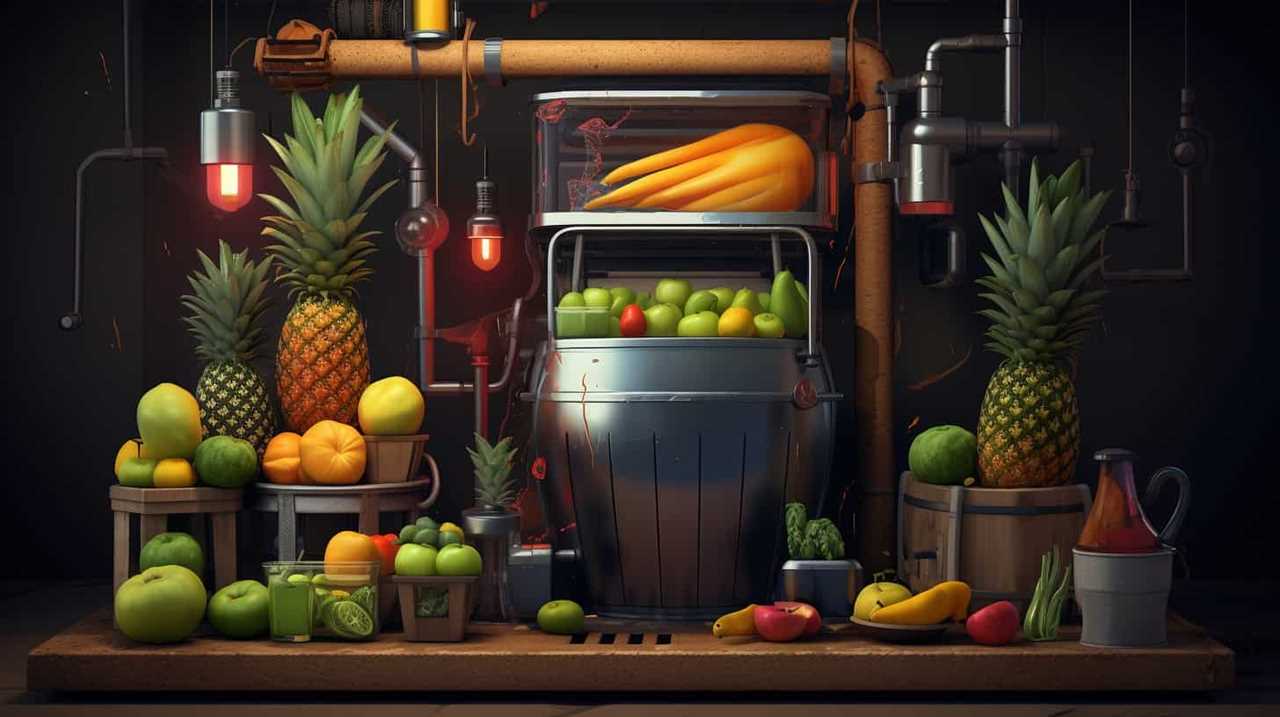
Can PET Bottles Be Recycled?
Yes, PET bottles can be recycled. In fact, they have a recycling viability of over 90%. This is important as it reduces their environmental impact and allows for the production of new bottles.
How Long Do Tetra Pak Cartons Typically Take to Decompose in a Landfill?
Tetra Pak cartons typically take a considerable amount of time to decompose in a landfill, which has a significant environmental impact. The decomposition rate of these cartons is an important factor to consider when evaluating their sustainability.
Are Aluminum Cans More Durable Than Other Types of Beverage Packaging Materials?
Aluminum cans, known for their resilience, outshine other beverage packaging materials in terms of durability. However, we must also consider the environmental impact. Plastic bottles, while less durable, have a significant detrimental effect on the environment.
What Are the Main Benefits of Using Biodegradable and Compostable Materials for Beverage Packaging?
Using biodegradable and compostable materials for beverage packaging offers numerous benefits. These eco-friendly materials provide sustainable packaging solutions, reducing environmental impact and waste. They are a responsible choice for those who value serving others and protecting the planet. In addition to minimizing pollution, biodegradable and compostable packaging helps conserve natural resources by promoting the use of renewable materials. For businesses and consumers alike, following green packaging tips for beverages, such as opting for plant-based or paper alternatives, can significantly reduce carbon footprints. By making conscious choices, we can collectively contribute to a healthier planet while still enjoying our favorite drinks.

Conclusion
In conclusion, when it comes to superior beverage packaging, the options are abundant.
Glass packaging offers a classic and elegant appeal, while PET bottles provide durability and convenience.
Tetra Pak cartons offer a sustainable and lightweight solution, and aluminum cans ensure freshness and portability.
Lastly, the use of biodegradable and compostable materials is gaining popularity, contributing to a greener and more environmentally friendly packaging industry.
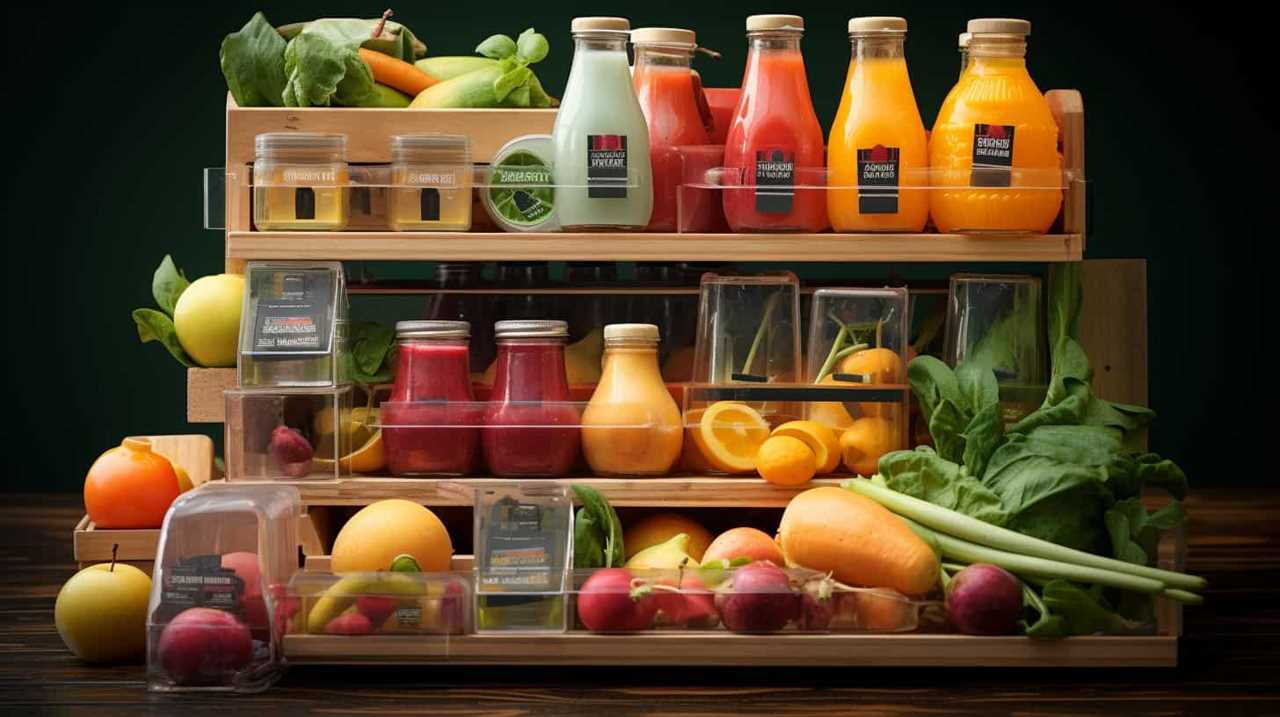
With these exceptional options at our disposal, beverage packaging has reached new heights of innovation and practicality, making every sip a truly remarkable experience.
Susannah expertise lies in researching and compiling evidence-based content on juicing, nutrition, and overall health. She is committed to ensuring that The Juicery World offers accurate, up-to-date, and trustworthy information to empower readers to take control of their health. Susannah’s goal is to inspire individuals to embrace juicing as a way to nourish their bodies and live their best lives.

